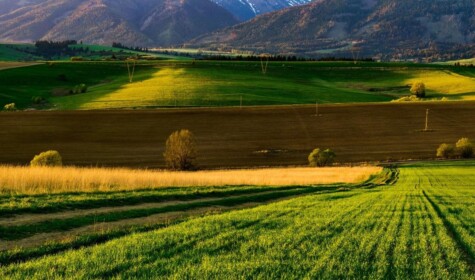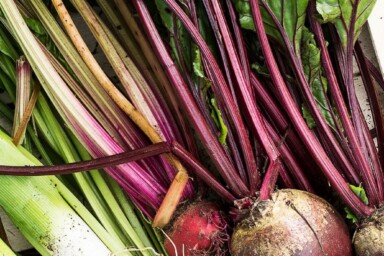In the UK, agroecology is increasing in profile. Included in the Agriculture Act and in the National Food Strategy, the UK Government seems poised to give agroecology an increased role in the future of agricultural policy.
This is a welcome shift for the future of sustainable food production. However, the UK is not alone in increasing its focus on agroecology. Across the world, national governments and civil society are working to amplify the shift towards agroecological production.
Agroecology across the world
Western Europe
There is a significant concentration of agroecology institutes and research centres in Western Europe, particularly in France, Belgium and Germany, and Agroecology Europe reported in 2020 that agroecology is growing through Europe. Of particular importance is the work by the French think tank IDDRI, which aims at a ‘radical – yet plausible, coherent and scientifically sound – scenario for an agroecological transition in Europe’. Many readers might already know IDDRI’s work from the joint research exercise between IDDRI, the FFCC, the Soil Association and AScA (Application des Sciences de l’Action), detailing the impact a transition to agroecology by 2050 would have upon UK food supply, climate policies and biodiversity commitments.
The Americas
In the US, agroecology is only starting to get the recognition that it deserves. Civil Eats reported in 2018 that, despite agroecology’s growth globally, ‘in the US…the word is rarely heard, even among people concerned with both agriculture and ecology’. Some progressive US organisations, such as the US Food Sovereignty Alliance (USFSA) that promotes agroecology in their work, explicitly highlights social justice and knowledge sharing, and Friends of the Earth US states that it is ‘working with allies…to advance a rapid transition to a sustainable, just and resilient food system based on agroecological principles’. That said, within the sustainable farming movement in the US, regenerative agriculture seems to be a more compelling term, indicated in the launch of a Regenerative Organic Certification programme in 2018.
Agroecology in the Global South tends to be explicitly connected to political questions of food sovereignty, indigenous knowledge and gender equality, differing slightly to other global understandings the term (specifically in the Global North). This was raised by leading academics, Miguel Altieri and Stephen Gliessman. In Latin America, Gliessman traces the roots of agroecology back to the aftermath of the Green Revolution in 1970s Mexico, which saw the rise in monocultures and the loss of traditional foodways and farming methods. This response to the Green Revolution was an explicitly political manifestation of agroecology to combat the marginalisation of rural and indigenous producers, as well as being a field of study and activism spanning from farm to table. This more politically motivated understanding of agroecology is present across the wider region, most notably through the international organisation, La Via Campesina (of which the UK based Land Workers’ Alliance is a member).
Australasia
On the other side of the Pacific, agroecology is growing rapidly, linked to indigenous practices. In Australia, agroecology is heavily promoted by the Australian Food Sovereignty Alliance. Their website promotes the idea that, despite the popularity of the term ‘regenerative agriculture’ in Australia, ‘agroecology’ delivers a ‘democratic participation of farmers in the food system’ and it highlights the importance of indigenous farming practices. Around the corner, in New Zealand, the organisation Ngā Pae o te Maramatanga launched a research project on indigenous agroecology in 2012. For this organisation, indigenous agroecology ‘focuses on guardianship of the land and the waters that flow through it, based on the traditional and contemporary experience of Māori and Moriori agricultural practitioners’. Therefore, it can be concluded that agroecology in Australia and New Zealand embraces the idea of agroecology as a tool for social justice and indigenous rights.
Asia
In Asia, fewer groups embrace the term of agroecology. Those that do use the term are concentrated in Southeast Asia. Given the active involvement of French agroecology institutes in agroecological projects and organisations in Southeast Asia, it is worth considering whether there is a cultural link, since many of the Southeast Asian countries involved are former colonies of France. For example, the major organisation promoting agroecology in the region is The Agroecology Learning Alliance in Southeast Asia (ALiSEA), which is working in Laos, Cambodia, Myanmar and Vietnam. ALiSEA aims to ‘enable local and regional agroecology stakeholders to leverage one another’s expertise to produce evidence-based studies and share them broadly to support a regional transition towards agroecology’.
Africa
Where you see a very strong voice for agroecology is in Africa. The Alliance for Food Sovereignty in Africa (AFSA) is a strong agroecological advocate. Their 2006 report, Agroecology: The Bold Future of Farming in Africa, provides case studies of agroecological farming from nine African countries. In 2020, AFSA launched an online campaign to promote agroecology as a climate change mitigation strategy and a way to build up the resilience of farming systems in the face of increasingly erratic weather patterns (#agroecology4africa). Another organisation which has considered agroecology in Africa on a continental scale is the California-based Oakland Institute, which has created a map of 33 case studies of agroecological farming across a wide range of African nations. Similar to the work of AFSA, the Oakland Institute’s work highlights the importance of agroecology to climate change resilience and mitigation, restoring soil health and increasing financial viability.
At the national scale, agroecology is embraced by the Peasant Farmers Association of Ghana (PFAG), which works to educate farmers on how to adopt agroecological principles, develops farmers’ entrepreneurial skills so as to maximise the benefits they receive from agroecology and builds their capacity to engage in policy advocacy. Notably, this organisation was founded in 2005 and was formed as a response to the highly damaging Structural Adjustment Programmes (SAPs) that caused great suffering among small-scale farmers in Ghana. There is, therefore, a strong community justice component to their advocacy.
What next for agroecology?
What we now need to see is these voices for agroecology joining up to build a global momentum for the practice, encouraging a wider shift to more sustainable and equitable approaches to food production. This will come through increased global connections and the expansion of a farmer-to-farmer network across the world. La Via Campesina is best placed to deliver this more networked approach to advocacy, given their global reach. However, without national government support for agroecology, there is a risk that it will fail to achieve the mainstream support that it deserves.






